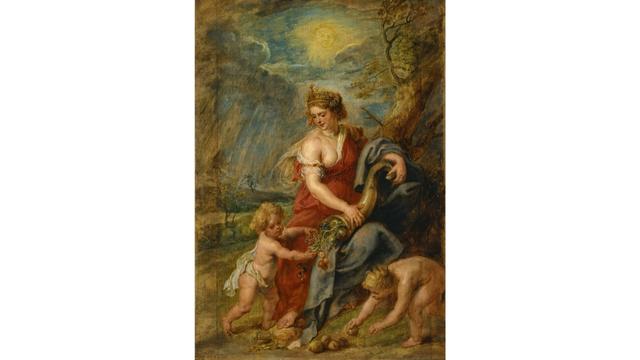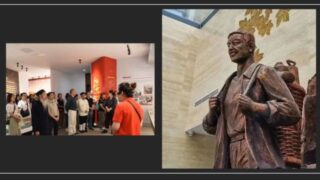Historically, Christmas gifts were intended to compensate those who during the year had received less than their due. It is surely the case of freedom of religion or belief.
by Massimo Introvigne and Marco Respinti


Are you giving gifts at Christmas? What do they mean? Do you believe this practice is as old as Christmas itself?
In 2013, French sociologist Martyne Perrot published a fascinating book called “Le cadeau de Noël. Histoire d’une invention” (Christmas Gifts: The History of an Invention, Paris: Autrement). She answered one of the questions: no, Christmas gifts as we know them today have not always existed.
What existed where New Year’s gifts, which are also common outside of the West. The Romans created the “strenae” (a word from which derive the French “étrennes” and the Italian “strenne”), an interesting name. “Strenae” originally meant “favorable omens” indicating that one would be blessed by Strenua, goddess of health. To honor Strenua and wishing good health, the habit was developed of giving gifts for the new year, called “strenae.” The chief of the family would give them to relatives and those working with him, sometimes including even the slaves.
“Strenae” continued in the Middle Ages and the modern era, as money in addition to salary given by patrons to their workers as an act of liberality for the new year—until the laws of some contemporary states made these liberalities mandatory, for example as a thirteenth monthly salary.


“Strenae” were not Christmas gifts, though. These developed. Perrot tells us, in Germany in the 17th and 18th century, when Christmas in addition to being a religious feast became a celebration of the family, and children were given toys. The development of German toy manufacturing had something to do with the advent of Christmas gifts to children, and inaugurated an era in which Christmas and commerce were strictly connected. With the industrial revolution Christmas gifts given to children, relatives, friends, and to the poor by charitable institutions, became common. The practice was fueled by industries and their publicity, which have never looked back.
The root in the old “strenae” remained, though, as the sociological meaning of the Christmas gift is connected with solidarity and the idea that somebody—our children, our friends, the poor, those who in many different ways serve us—are entitled to more than what they normally receive. A day in the year has been chosen to make this situation right. Christians are supposed to do it in the spirit of Christ, the living embodiment of charity, but the spirit of Christmas speaks to non-Christians too.
Among those who are entitled to more than they normally receive is religious liberty. Freedom of religion or belief is also among the poor and the destitute. A U.S. parliamentary commission stated that we live in the worst year for religious liberty in China since the Cultural Revolution. We cover what happens in China daily. The increased surveillance of everybody and everything with the pretext of the Zero COVID policy and the consolidation of all powers in the hands of one man, Xi Jinping, made the persecution of all religions worse.
We cannot cover all the countries of the world, but we have some favorite subjects (and correspondents sending original materials about it). One is the persecution of religious minorities in Pakistan, epitomized by the blasphemy laws, the daily persecution of the Ahmadis, and the kidnapping of young girls from minority religions who are forcibly converted to Islam, raped, and married to their captors. Another is the brutal repression of religious minorities in Russia, with the pretext that they conspire with Ukraine and the West in sabotaging the “special military operation.”


A third case is the harassment through tax bills of a spiritual movement called Tai Ji Men in Taiwan: taxes, yes, but as their leader uses to say, that there is no blood in a persecution does not mean that there is no pain. Fourth—but we cover other subjects as well—we care about the persecution of groups labeled as “cults” in both totalitarian and democratic countries, of which the witch hunt in Japan against the Unification Church after the assassination of former Prime Minister Shinzo Abe and the slander and discrimination of the Jehovah’s Witnesses in several countries are just two examples.
We cannot send money to help the persecuted, and in most cases, this is not even possible, but we give “strenae” to them every day by telling their stories and giving voice to the voiceless. We know many readers sympathize with us and with the victims, and are frustrated by the fact that sending material help to the latter is so often impossible.
Invariably, when we meet the victims, we are told that what they need the most is not money. It is that their stories be told to the world. This is all-important, it is the reason why Bitter Winter exists, and it is what we do—every day.
Helping those who tell the victims’ stories “is” helping the victims. We know you all have your “strenae” for Christmas, but do not forget Bitter Winter. We are all volunteers; nobody gets a salary at Bitter Winter. Some of us are “rewarded” by being slandered and threatened on social media and elsewhere (China alone employs an army of trolls), and some of those who send us articles from China go to jail. There are no salaries here but there are expenses to run what has become a monumental website and protect it from government-sponsored hackers.
If you like what you read, consider it can only continue to be published if we are supported by donors. The joy of Christmas giving—giving to religious liberty—is just one click away.









